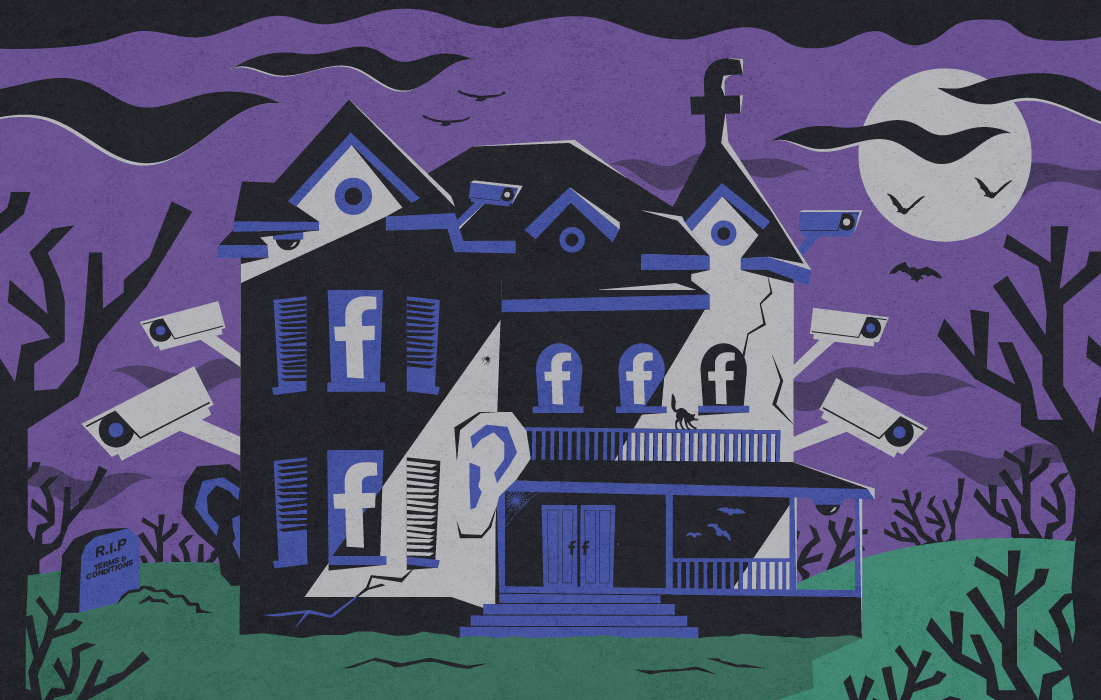
A few years ago, Facebook might have been the place you posted a fun Halloween picture to demonstrate your costume creativity or stake claim to the largest number of candies gathered. However, with the evolution the platform has undergone, Facebook warrants a second look this Halloween.
Facebook has close to three billion users, making it the world’s largest social media platform.
Just to think that so many people from across the globe use Facebook as a platform to connect with people, get their daily news and surf the web is staggering.
This scale is precisely why an enormous and important responsibility is placed on the company’s shoulders. In the past, Facebook has had its fair share of challenges, including the spread of fake news and user privacy and data breaches.
Frances Haugen, a former employee of Facebook — with both a background in computer science and business — offered a unique perspective when she told the American Senate that Facebook’s products cause harm to children, stoke division and weaken democracy. Haugen has worked at several technology companies, including Google and Pinterest, and co-founded Hinge, a popular dating app. The fact that someone with experience in working for the technology world is raising these issues is concerning.
And these are concerns we should be thinking about. After all, her words point to our health, unity of society and democracy — all essential pillars that impact our daily lives.
The health impact of using social media has been a recurring conversation, but one worth having again. Research has shown that Facebook could have an impact on one’s health, especially on its female users. A study found that users who compared themselves to other people on social media or experienced anxiety and depression were more aware of sleeping issues, muscle tension and weight fluctuations.
Additionally, The Wall Street Journal recently published research showing that Instagram, a subsidiary of Meta — the parent company formerly known as Facebook, and that owns Facebook — harms the wellbeing of teenage girls. The report also included data linking Instagram use to anxiety, depression, suicidal thought and body image issues.
Beyond individual health effects, there are also societal impacts to think about. A study published in Nature: Human Behaviour found that Facebook spreads fake news more than Google, Twitter or email providers. The spread of misinformation has serious consequences, including for important democratic exercises like elections and in the face of health challenges like the COVID-19 pandemic.
As a society, it is absolutely crucial we are aware of the impact of the products we use on a daily basis, including social media. This awareness is important in coming up with creative ways to mitigate and tackle these issues effectively and to help build stronger social media platforms.
One practical solution to minimize these effects is using social media less. But like those of us who put minimizing social media use on our New Year’s resolutions know, it’s not an easy idea to digest and even harder to implement. And it’s not just about the difficulty in controlling our impulses.
A Vox article investigating why it’s so hard to quit the app says that the process is made much harder because many third-party apps are integrated with your Facebook account, so much so that some apps, like Tinder, cannot be accessed without first logging in through Facebook. Additionally, for many users, Facebook is a platform that is needed for work and school — think Facebook groups and school projects. With Facebook and our lives being so tied together, we can’t easily reduce use.
So perhaps then, the place to start is with tracking our use of the app. Initially, this might seem like a guilt trip, but after observing your habits, it might just become the needed catalyst for change.
Perhaps that will be the greatest trick and treat for this Halloween.
—
This op-ed was written by a University of Saskatchewan undergraduate student and reflects the views and opinions of the writer. If you would like to write a reply, please email opinions@thesheaf.com. Vaidehee Lanke is a fourth-year undergraduate student studying bioinformatics and is the Opinions Editor at The Sheaf Publishing Society.
Graphic: Jaymie Stachyruk | Graphics Editor
Leave a Reply